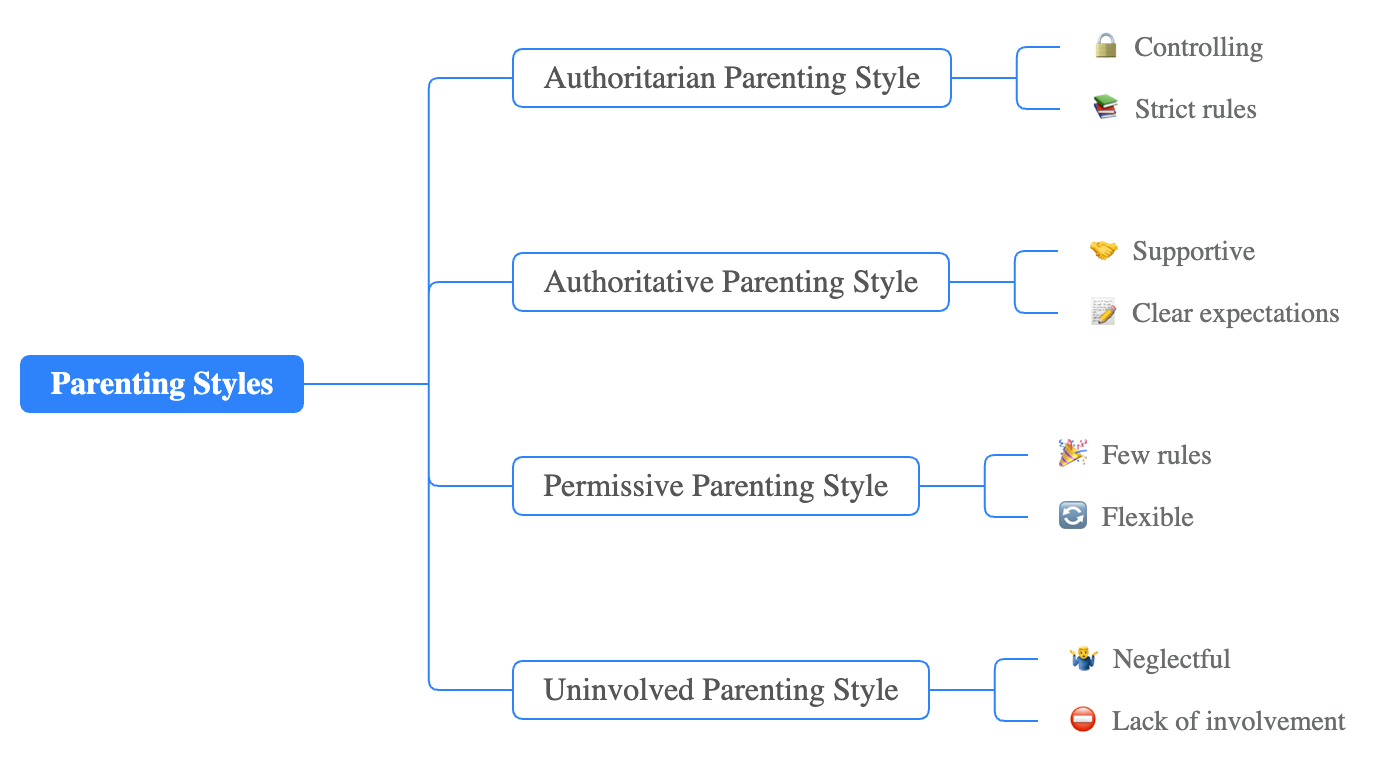Understanding Parenting Styles: A Framework for Effective Child Development
Parenting styles significantly impact a child’s social, emotional, and cognitive development. Psychologists have identified four primary parenting styles, each characterized by distinct approaches to discipline, communication, and expectations.
Authoritarian Parenting:
- Key Characteristics: Authoritarian parents prioritize strict obedience and control. They establish numerous rules with little to no explanation and expect unquestioning compliance. Discipline often involves harsh punishments like yelling or physical reprimands.
- Potential Impact on Children: While this style may lead to short-term compliance, it can hinder children’s development of autonomy, self-esteem, and critical thinking skills. Research suggests a link between authoritarian parenting and increased anxiety, depression, and social difficulties in children.
Permissive Parenting:
- Key Characteristics: Permissive parents are lenient and establish few rules. They prioritize maintaining a “friend” dynamic with their children and may hesitate to set clear expectations or enforce consequences for misbehavior.
- Potential Impact on Children: While this style fosters a sense of freedom, it can leave children lacking the self-regulation skills and boundaries needed for healthy social and academic development. Children may struggle with delayed gratification and exhibit impulsive behaviors.
Authoritative Parenting:
- Key Characteristics: Authoritative parents strike a balance between demanding and responsive. They set clear rules and expectations while remaining open to explanation and discussion. They prioritize warmth, support, and open communication.
- Potential Impact on Children: This style is widely considered the most effective for fostering healthy child development. Authoritative parenting promotes self-confidence, strong decision-making skills, and a sense of responsibility. Children raised in this style tend to exhibit better academic performance and social skills.
Uninvolved Parenting:
- Key Characteristics: Uninvolved parents are emotionally distant and provide minimal guidance and support. They may be neglectful, failing to fulfill their children’s basic needs, or simply emotionally unavailable.
- Potential Impact on Children: This style has the most detrimental impact on child development. Uninvolved parenting can lead to low self-esteem, attachment issues, social isolation, and academic difficulties. In extreme cases, neglect can lead to serious emotional and physical problems.

Recognizing that parenting styles exist on a spectrum and may evolve with the child’s needs and family dynamics is essential. Ultimately, the “best” parenting style depends on adapting to individual children’s temperaments and fostering a supportive, nurturing environment. By cultivating warmth, clear communication, and appropriate boundaries, parents can empower their children to thrive emotionally, socially, and academically.
“Parenting styles sculpt futures through love, guidance, and adaptability.”
Jenitha Jayanthnath
Parent of Jaishaa J of PRE KG
Mahatma Global Gateway CIE

